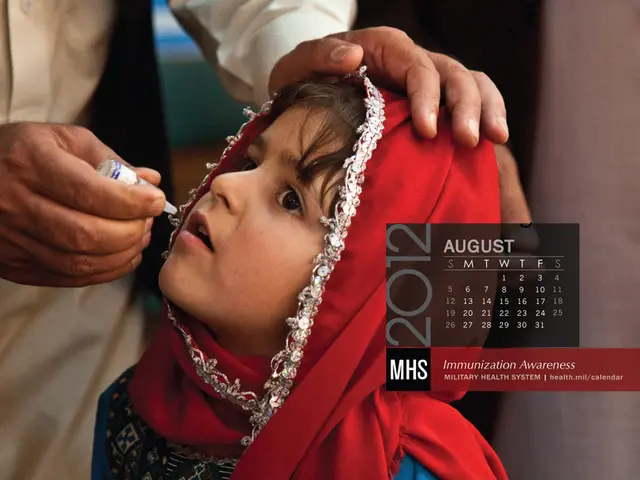Impacts of Revised COVID-19 Vaccine Guidelines: Which Groups are Involved?
In a surprising turn of events, the Centers for Disease Control and Prevention's (CDC) recommendations for COVID-19 vaccination have seen a significant shift, triggered by Health Secretary Robert F. Kennedy Jr. on May 27, 2025.
The updated guidelines mean that pregnant individuals and healthy children are no longer to be prioritized for vaccination. Only older adults and those at high risk of severe consequences from SARS-CoV-2 infections still qualify for the shots, as a new, highly transmissible variant, NB.1.8.1, emerges in the United States.
The new guidelines have sparked debate and concern, as health experts voice their concerns about the potential consequences for vulnerable populations.
Daniel Ganjian, MD, FAAP, emphasizes the importance of vaccination for pregnant individuals: "If COVID-19 vaccines are no longer recommended for pregnant individuals, pregnant individuals would lose a key intervention that reduces their risk of severe COVID-19, ICU admission, preterm birth, and perinatal death."
Monica Gandhi, MD, MPH, also highlights the importance of considering pregnant women's immunocompromised state, emphasizing the need for booster shots to protect them from severe COVID-19.
With healthy children, concerns lie in unexpected health impacts due to coronavirus infection. As Ganjian warns, "Removal of COVID-19 vaccine recommendations would increase the risk of severe COVID-19, hospitalization, and complications such as MIS-C, particularly among those with underlying medical conditions."
As for public health, Ganjian cautions against rescinding broad recommendations, stating that such a move could increase morbidity in vulnerable populations. "From a public health perspective, rescinding broad recommendations would likely signal a shift in risk assessment, possibly due to changes in epidemiology, variant severity, or vaccine effectiveness."
Reflecting on the FDA's recent recommendations for placebo-controlled trials for new COVID-19 vaccines, Gandhi shares her apprehension about exposing vulnerable individuals to severe disease. "It would not be ethical to compare a new COVID-19 vaccine with a placebo in a vulnerable individual ... being in the placebo arm would leave them unprotected."
Lastly, the question remains: Can pregnant people and parents still access COVID-19 vaccines privately, despite the new guidelines? According to Ganjian, access might still be possible via private purchase or off-label use, contingent on regulatory status and healthcare provider policies, though insurance coverage and public health supply may be limited if recommendations are withdrawn.
The updated CDC guidelines remove vaccination prioritization for pregnant individuals and healthy children, causing health experts like Daniel Ganjian and Monica Gandhi to express concern about the potential rise in severe COVID-19 cases, ICU admissions, perinatal deaths, and MIS-C among these groups. This shift in policy has led to questions about the appropriateness of placebo-controlled trials for new COVID-19 vaccines, particularly for vulnerable individuals. Despite the new guidelines, access to COVID-19 vaccines for pregnant people and parents may still be possible through private purchase or off-label use, subject to regulatory status, healthcare provider policies, and potentially limited insurance coverage and public health supply. In the broader context of health-and-wellness, policy-and-legislation, general-news, and politics, this situation underscores the importance of scientific research for understanding the immunological responses to SARS-CoV-2 in various populations and the need for cautious policy decisions regarding other viral infections and medical-conditions.








